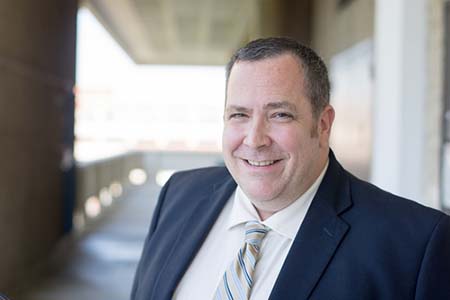Media contact: Yvonne Taunton
 The new program, co-led by Scott Batey, Ph.D., MSW, will give study participants living with HIV individualized, strengths-based case management from a community health worker. The National Institutes of Health/National Institute of Nursing Research has awarded $2.97 million to the University of Alabama at Birmingham’s Scott Batey, Ph.D., MSW, for a new grant program aimed at reengaging people living with HIV into medical care.
The new program, co-led by Scott Batey, Ph.D., MSW, will give study participants living with HIV individualized, strengths-based case management from a community health worker. The National Institutes of Health/National Institute of Nursing Research has awarded $2.97 million to the University of Alabama at Birmingham’s Scott Batey, Ph.D., MSW, for a new grant program aimed at reengaging people living with HIV into medical care.
Batey is associate professor and Honors Program director of the College of Arts and Sciences’ Department of Social Work.
Funding for the project, Community Health worker And MHealth to imProve viral Suppression, or CHAMPS, will extend over four years. The project will be led by Batey, as well as Rebecca Schnall, Ph.D., MPH, RN-BC, of Columbia University.
CHAMPS will enroll 150 adults living with HIV in Birmingham and another 150 in New York City who are not virally suppressed or consistently taking antiretroviral medication. Participants at both sites will be randomized to receive either the CHAMPS intervention or standard care. Participants who are selected for CHAMPS will receive individualized, strengths-based case management from a community health worker as well as access to an app called WiseApp.
Batey has implemented the community health worker intervention in a previous study, Birmingham Access to Care, conducted with Dr. James Raper of the UAB School of Medicine and in collaboration with Birmingham AIDS Outreach. The study demonstrated the potential of community health workers to improve reengagement and retention in HIV primary medical care.
The addition of the WiseApp, developed by Schnall and colleagues at Columbia University, to the community health worker model will allow for these workers to communicate with clients remotely and will monitor ARV adherence in real time through the use of a medication tracker.
In addition to the randomized control trial of the CHAMPS intervention, the team will also identify multilevel factors associated with its successful implementation in the real world, to inform future usage and scale-up.
